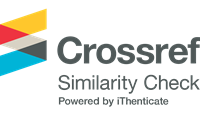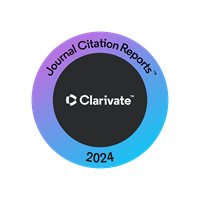<b><i>In vitro</i> germination of babassu: influence of growth regulators in zygotic embryos
Abstract
Babassu is a highly productive oil plant that is propagated from seed. Therefore, tissue culture techniques are of great importance because propagation is accelerated. The objective of this study was to evaluate the effect of growth regulators, NAA, BAP, and KIN, on in vitro germination and on the growth of babassu zygotic embryos. Three trials were conducted. For trial (I), the interaction between NAA (0, 1, and 2 µM) and KIN (0, 1, and 2 µM) were studied; for trial (II), the interactions among NAA (0, 1, and 2 µM), KIN (0, 1, and 2 µM), and BAP (1 µM) were studied; and for trial (III), the interactions among NAA (0, 1, and 2 µM), KIN (0, 1, and 2 µM), and BAP (2 µM) were studied. At 30, 60, 90, and 120 days of culture, we assessed average seedling height, and at 120 days, we assessed germination, the germination speed index, cotyledonary petiole growth, oxidation, and the formation of shoots, roots, and calluses. The best results for cotyledonary petiole formation and average seedling height were obtained when using 1 µM of BAP in the culture medium. We also found that the 2 µM of NAA favored root formation.
Downloads
DECLARATION OF ORIGINALITY AND COPYRIGHTS
I Declare that current article is original and has not been submitted for publication, in part or in whole, to any other national or international journal.
The copyrights belong exclusively to the authors. Published content is licensed under Creative Commons Attribution 4.0 (CC BY 4.0) guidelines, which allows sharing (copy and distribution of the material in any medium or format) and adaptation (remix, transform, and build upon the material) for any purpose, even commercially, under the terms of attribution.




















































